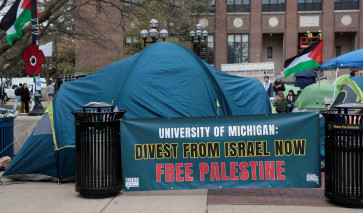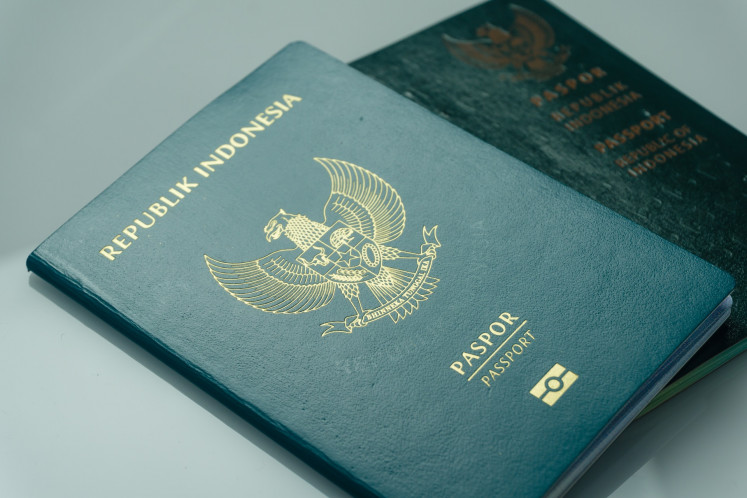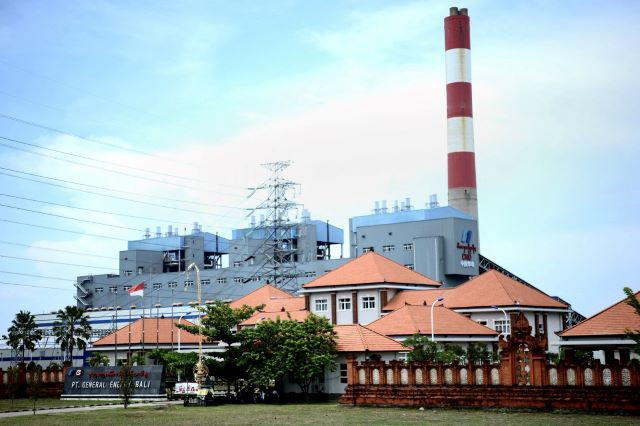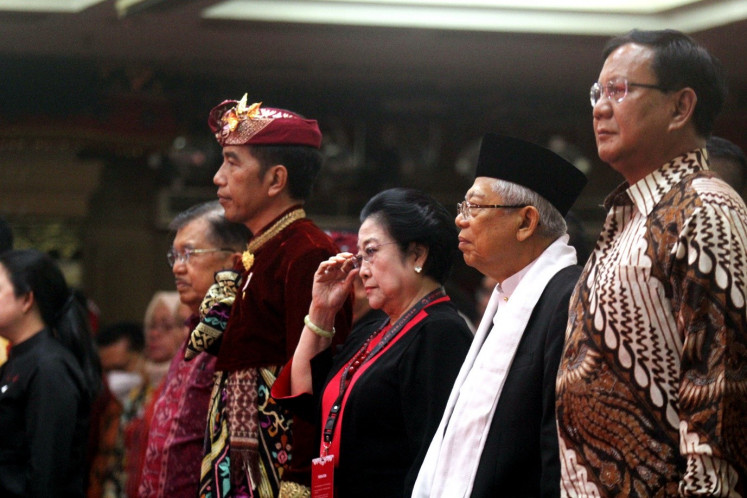United States and Indonesia: Overflying each other on trade
Beyond the lagging high-level engagement with Indonesia, also lacking in the Biden administration’s Indo-Pacific strategy is an economic initiative to reinforce the security engagement.
Change Size

I
n its first months in office, the administration of United States President Joe Biden intensified engagement with key Asian partners. An early March trip by Secretary of State Antony Blinken and Secretary of Defense Lloyd Austin to security allies Japan and Korea set the tone. Secretary Austin also stopped in India.
Both Blinken and Austin were back in July, with Blinken visiting India and Austin stopping in Singapore to give a speech urging the importance of regional cooperation “to tackle current and emerging challenges in the region that is the highest strategic priority for the Department of Defense.” He then left for stops in Vietnam and the Philippines.
President Biden’s convening of the Quad (the US, India, Japan and Australia) which he hosted virtually in March was his first multilateral leaders meeting, and underscored the region being at the center of his foreign policy concerns. The Japanese prime minister was the first foreign leader to meet with President Biden in the White House, and indications are that Prime Minister Modi may visit before year’s end.
Vice President Kamala Harris is making her first trip to Asia by visiting Singapore and Vietnam, further signaling engagement in the Indo-Pacific region is a key Administration priority.
The US security focus of relations with Asian partners is logical given the growing tensions over Chinese maritime claims and rising concerns about conflict over Taiwan. Meanwhile, the fiasco in the US withdrawal from Afghanistan will likely have longer-term if not yet definable impacts on the security situation in the Indo-Pacific, and U.S. relations with regional countries.
One country that notably has not drawn a high level visit from the Biden administration is Indonesia – the foundation nation and home of ASEAN which sits at the southern boundary of the South China Sea. Other than US assistance for Indonesia’s efforts to battle COVID-19, and funding for a Coast Guard training facility on Batam Island, there has been slight indication from the Biden administration of Indonesia being important to its Indo-Pacific strategy – and senior officials have “overflown” Indonesia during their visits to the region.
No doubt, just as many countries in the region, and consistent with its non-aligned foreign policy legacy, Indonesia will resist choosing sides between the US and China – a regional concern discussed publicly by Prime Minister Lee of Singapore. At the same time, the Indonesia government has sent Cabinet officials to Washington, including a visit in early August by Foreign Minister Retno Marsudi, who met with Secretary Blinken and National Security adviser Jake Sullivan. The result of those meetings framed as a “strategic dialogue,” include working together to defend freedom of navigation in the South China Sea.
Beyond the lagging high-level engagement with Indonesia, also lacking in the Biden administration’s Indo-Pacific strategy is an economic initiative to reinforce the security engagement. There will be no near-term US participation in any version of the Comprehensive and Progressive Agreement for Trans-Pacific Partnership (CPTPP) trade agreement. For 2021, at least, President Biden understandably remains focused on his domestic economic agenda and not an international one.
Indonesia, meanwhile, is taking steps to expand its trade relationships, having signed the Regional Comprehensive Economic Partnership (RCEP) with China and more than a dozen other countries. Other recent trade deals have been concluded with Australia, Chile and South Korea – and negotiations with the European Union are back on despite frictions over palm oil. In June, Indonesia launched bilateral trade negotiations with Canada. All of which underscores the awkward absence of any talks with the US.
Both Indonesia and the US are losing an important opportunity to better secure and expand their interests through a new trade deal. Indonesian Trade Minister Muhammad Lutfi has twice met with US Trade Representative Katherine Tai (virtually) in March and in July, when the two trade minsters reportedly discussed working together on shared interests at the WTO, including on fisheries subsidies, financial services and agreed to a meeting later this year under a long-established but sluggish bilateral Trade and Investment Framework Agreement. Such a readout did not signal anything new or bold was to be expected.
Perhaps more was discussed than reported, but the pace of trade engagement should accelerate. Now is the time for the two countries to be laying the groundwork for a new trade deal. Such bilateral negotiations need not target an immediate full free trade agreement. Rather, it might make more sense to develop a first phase package, which with time and confidence could lead to a more robust accord.
Just announcing the start of trade negotiations would supercharge Indonesia’s position in the US market. Thus far, Vietnam has been the main beneficiary of US trade tensions with China. But with many buyers concerned about over reliance on Vietnam, there is scope for Indonesian industry to expand its US market position, including in apparel, footwear and travel goods. The US, meanwhile, also has significant interests in deepening its trade position with the fourth most populous country in the world.
It is unfortunate that Vice President Harris is apparently “overflying” Indonesia during her trip to the region. It will be more unfortunate if Indonesia and the US do not advance their mutual trade interests and soon begin negotiations to do so.
***
The writer is a principal in the trade advisory firm of Sorini Samet & Associates LLC and a former trade policy official in the Clinton administration.









